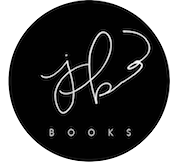First, a story. Once upon a time, in a television show called Sex and the City, Carrie Bradshaw wrote salacious advice columns in her cute New York City apartment, that she couldn't possibly afford IRL.
Until one day, in one particular episode, she's forced to flee to premises to work at a Starbucks while her boyfriend Aidan fixes up her apartment like the perfect boyfriend that he is. Anyway. The point is, Carrie comments that people writing in coffee shops are phonies.
I CALL BULL.
Writers don't have to write in coffee shops, of course. They also don't need to drink tea/coffee, quote Shakespeare, go to poetry readings or play Quidditch. There isn't a writer initiation, thank goodness. Writers write. That's the only rule.
Maybe you're the type of writer who needs complete silence. Maybe you blare music. Maybe you even watch TV shows as background noise (guilty). Whatever works for you, do that. Writing is hard enough. But, there are benefits to coffee-shop writing, so if you're looking to branch out, I've got a few tips!
People-Watch
Ok, so this doesn't technically fall under "how to write in coffee shops." More like "how to stalk in coffee shops." Still. People-watching is a writer's secret weapon of inspiration. Write that down. Here are a few ideas of things worth your attention:
- Interactions. How do the people around you treat one another? Are they friendly? Are they cautious?
- Conversations. Okay, tread lightly here. This is a tad violating, but it's beneficial to observe how people talk to each other.
- Activity. What's happening around you? Coffee spills? Study groups?
You will be amazed at the kind of people you'll see, the kind of conversations you'll accidentally-on-purpose overhear. Trust me, you'll be hammering away at the keys in no time.
The Barista is Your Best Friend
Say you find your favorite coffee shop. Say you find your favorite chair in your favorite coffee shop. You know, the one with the perfect lighting and easy access to a wall plug? These are all good things. But let's not forget the one who holds all the cards here, my friend. The barista.
I like to make friends with baristas because a) they're awesome and b) they start to remember my order and that's the dream. Tip your baristas. They're the ones in charge of the thermostat.
Bring Headphones, Even if You're Not Listening to Anything
Here's a productivity secret for you. If you plan on listening to music, by all means, this is an excellent way to go about that. If not, wearing headphones can isolate you a little bit. Jenny, do you want me to be a loner? Yes. Yes, I do.
Think of it as tricking your mind. By cutting yourself off from the other people around you, even in just a small way, you can tap into your own mind a lot easier. Try this: point at the nearest coffee person and say you don't exist. Just kidding. Don't do that. Too late? Oops.
Discussion Time: What are your coffee shop techniques? Where's your favorite writing spot?






